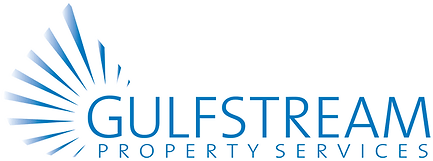Pressure Washing vs. Soft Washing: The Complete Guide for Florida Homeowners
July 1, 2025
Florida's humidity makes it easy for mold, algae, and dirt to build up on your home's exterior surfaces. These contaminants don't just look unsightly. They can cause permanent damage to your property if left untreated. But cleaning your home the wrong way can be just as harmful as not cleaning it at all.
Keeping your home's exterior clean requires the right approach. You need to understand two key methods: pressure washing and soft washing. Each serves different purposes and works best on specific surfaces. Pick the wrong approach and you could regret it. Damaged siding, voided warranties, and costly repairs often result from poor cleaning choices.
Understanding Pressure Washing
Pressure washing utilizes highly pressurized water streams to remove stubborn dirt and stains. Pressure washers use powerful water jets between 1,500 and 4,000 PSI. This intense pressure can remove even years of stubborn dirt and stains.
Ideal Applications for Pressure Washing:
- Concrete surfaces (driveways, sidewalks, pool decks)
- Brick patios and walls
- Durable exterior materials like stucco
- Garage floors and outdoor hardscapes
Benefits of Pressure Washing:
- Effectively removes deep-set stains including oil, rust, and chewing gum
- Cleans large areas efficiently
- Can be done without chemicals in many cases
Potential Drawbacks:
- Too harsh for many roofing materials
- May damage vinyl siding and painted surfaces
- Can force water behind siding or under shingles
- May etch or pit concrete if used improperly
Homeowners should be particularly cautious with pressure washing roofs. Many roofing manufacturers explicitly state that high-pressure cleaning voids warranty coverage.
The Soft Washing Alternative
Soft washing offers a gentler approach to exterior cleaning. oft washing uses low-pressure water (500-1,000 PSI) with special cleaners. This gentle combination removes stains and organic growth safely.
Best Uses for Soft Washing:
- Roof cleaning (asphalt shingles, tile, metal)
- Vinyl, wood, and painted siding
- Screened enclosures and lanais
- Decks, fences, and outdoor furniture
Advantages of Soft Washing:
- Safe for delicate surfaces
- Kills mold and algae at the root
- Uses biodegradable, eco-friendly solutions
- Provides longer-lasting results
Considerations:
- Requires more time than pressure washing
- Costs slightly more due to specialized solutions
- Less effective on oil-based stains
Coastal properties especially benefit from soft washing. Ocean salt speeds up algae growth on exterior surfaces. Meanwhile, our constant humidity creates perfect conditions for mold and mildew.
Key Differences at a Glance
| Feature | Pressure Washing | Soft Washing |
|---|---|---|
| Water Pressure | 1,500-4,000 PSI | 500-1,000 PSI |
| Primary Use | Tough stains on hard surfaces | Delicate surfaces with organic growth |
| Cleaning Method | High-pressure water | Low-pressure water with cleaners |
| Surface Safety | Risk of damage | No damage risk |
| Typical Cost | $0.10-$0.50/sq ft | $0.20-$0.80/sq ft |
Choosing the Right Method for Your Home
The best cleaning approach depends on your specific situation. Here's how to decide:
When Pressure Washing Makes Sense:
- Removing oil stains from driveways
- Cleaning concrete pool decks
- Preparing surfaces for painting or sealing
- Eliminating graffiti or paint overspray
When Soft Washing is Better::
- Cleaning roofs with black streaks
- Maintaining vinyl siding
- Restoring wood decks and fences
- Washing screened enclosures
Most homes need both cleaning methods. Use pressure washing for hard surfaces like driveways. Choose soft washing for roofs and siding. Professional cleaners can assess your property and recommend the ideal combination.
Warning Signs Your Home Needs Cleaning
Watch for these indicators that your exterior needs attention:
- Visible black or green streaks on roofs or siding
- Crumbling mortar between bricks
- Musty odors near exterior walls
- Excessive dirt buildup on walkways
- Clogged gutters filled with debris
- Fading or peeling paint
Common Cleaning Mistakes to Avoid
Florida homeowners should be aware of these frequent errors:
- Using pressure washers on roofs (voids warranties)
- DIY soft washing with improper bleach mixtures (harms landscaping)
- Neglecting gutter cleaning (leads to water damage)
- Waiting too long between cleanings (allows permanent damage)
- Using incorrect pressure settings (causes surface damage)
Frequently Asked Questions
How often should I clean my roof in Florida?
Roofs typically need cleaning every 1-2 years. Coastal homes may need it annually due to salt air and humidity.
Can pressure washing damage my siding?
Yes, especially vinyl and painted surfaces. Always verify the appropriate PSI for your siding material.
Does soft washing kill mold permanently?
While it eliminates current growth, Florida's climate means regrowth will occur. Regular treatments maintain protection.
Which method is more expensive?
Soft washing costs more than pressure washing. The special cleaners add expense, but they prevent damage that would cost much more to fix.
Is DIY exterior cleaning recommended?
For anything beyond basic maintenance, professional service is safer and more effective.
Why Gulfstream Property Services Stands Out
With over 20 years serving Florida homeowners, we offer:
- Local expertise with Florida-specific solutions
- IICRC-certified technicians
- Eco-friendly cleaning products
- 5-star rated service
- Free, no-obligation estimates
Take Action Today
Don't let mold and algae damage your Florida home. Call Gulfstream Property Services at 561-818-3277 for a professional assessment and quote. We'll recommend the perfect cleaning solution tailored to your property's needs.
Final Recommendations
- Use pressure washing for durable, non-porous surfaces
- Always choose soft washing for roofs and delicate materials
- Schedule regular cleanings to prevent permanent damage
- Trust professionals for best results and safety
Maintaining your home's exterior protects your investment and preserves curb appeal. With the right cleaning approach, you can keep your property looking its best for years to come.
